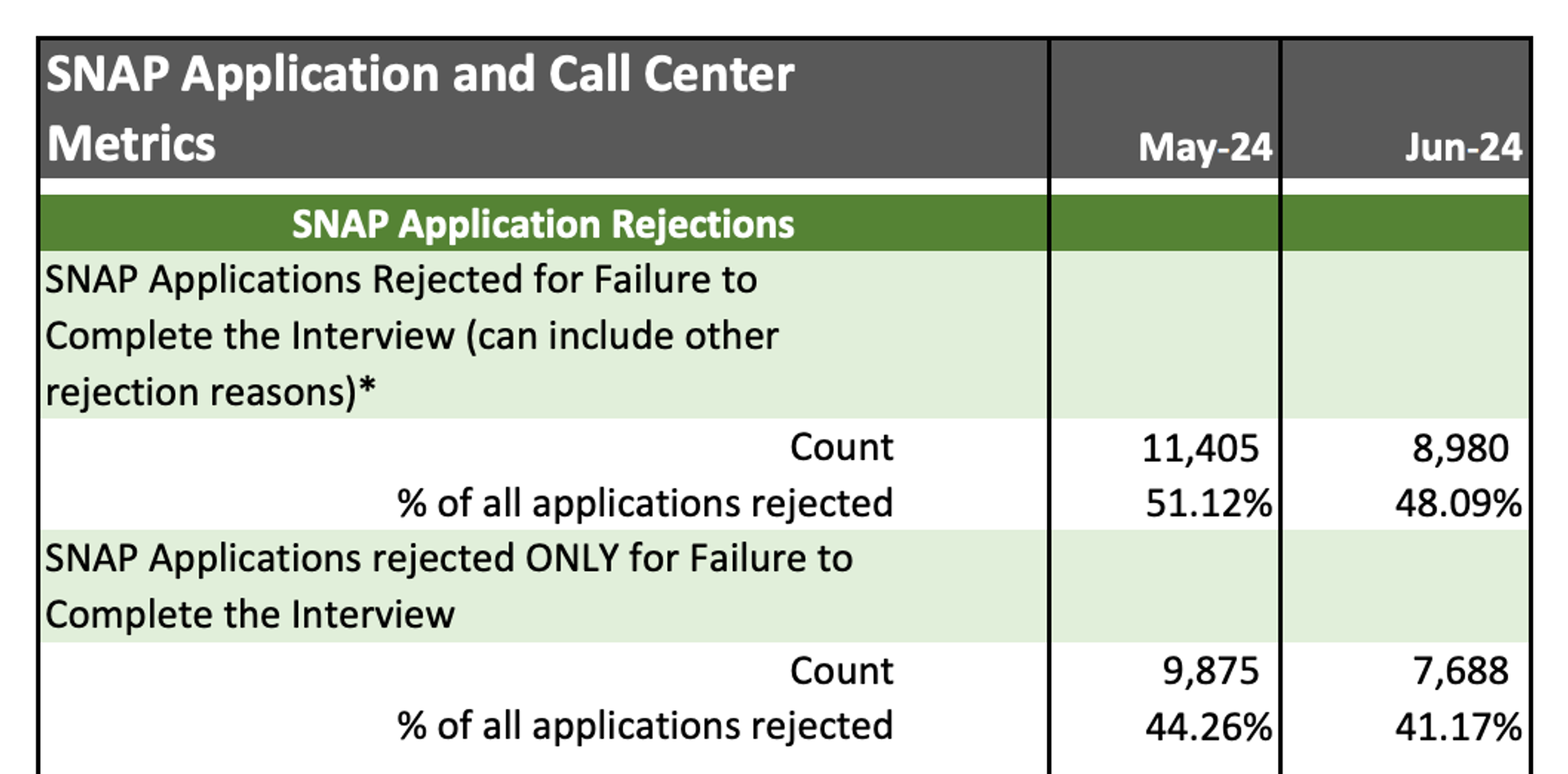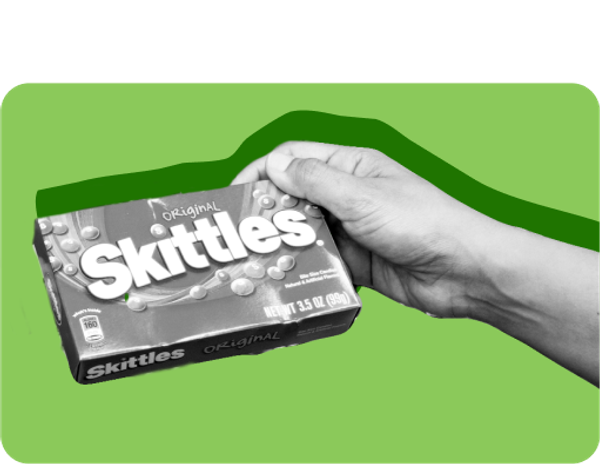Getting a SNAP interview if you're having trouble

Summary#summary
- Interviews are required when you apply for (or recertify) SNAP
- Most states schedule an interview time for you, but 16 states interview "on-demand" meaning you call them
- In some states, it can be hard to get your interview, but we have tips that can help
- Don't give up! If you are having trouble getting an interview, you have options to escalate the issue
The basics of SNAP interviews#the-basics-of-snap-interviews
To be approved for food stamps (SNAP), you must do an interview.
You have to interview both when you apply, but also when you do your annual recertification.
(Note: you do NOT need to interview for a periodic report/semi-annual report.)
Some states waived interviews during Covid, but most states have started doing interviews again, and all states must resume interviews no later than October 31, 2024. [1]
Most states default by doing interviews on the phone. But you can always request to do an in-person interview.
States generally do interviews in one of two ways:
1. Scheduling interviews for a specific time (most common)
2. "On-demand" interviews (16 states)—where you call them, rather than having a scheduled time
The states that are allowed to do on-demand interviews as of Sept 4, 2024 are: Arizona, Connecticut, Florida, Idaho, Kentucky, Minnesota, Missouri, Montana, Oklahoma, Rhode Island, South Carolina, Texas, Utah, Vermont, Washington, Wisconsin [2]
Tips to avoid missing your interview#tips-to-avoid-missing-your-interview
Unfortunately a lot of people accidentally miss their interview, and some of them get denied despite being eligible for SNAP.
Here are some tips to make sure this doesn't happen to you:
1. Find out if you have a scheduled interview, or if you have to call them instead. This information should usually be in your application/recertification, or can be found on the "notice" they send you by mail and/or online.
2. Look on your SNAP online portal (and/or in your mail) for a notice of interview scheduling. If your agency schedules interviews, they will send you a notice telling you what day and time it is scheduled for.
3. Answer all calls you get for the next week (even from unknown or restricted phone numbers). In many cases, a SNAP agency may call you to do the interview, especially if you qualify for "expedited service" which means they are required to interview you faster. Often, these calls may come from an unknown or blocked number, so pick up all calls to be safe! Related...
4. Make sure your phone will accept calls from blocked numbers. A lot of cell phones have a setting where they don't ring if a call is coming from a blocked number. Go into your phone's settings and make sure this is turned off while you're in the SNAP process.
If you take these steps, it should significantly reduce the odds you miss your interview.
Tips for rescheduling your interview#tips-for-rescheduling-your-interview
If you missed your interview, your agency will send you a notice (online and/or by mail), called a "Notice of Missed Interview."
On that notice, it should tell you how to reschedule your interview—usually by calling a phone number they give.
If that phone number doesn't work or you can't reach someone, next try calling your SNAP agency's general phone number. (You can find your state's SNAP phone number on our state guide pages.)
Tips if you're stuck and can't get an interview#tips-if-youre-stuck-and-cant-get-an-interview
Unfortunately, many state agencies have been overloaded and facing staff shortages for the past few years. This has led in some cases to people having a really hard time doing the required interview.
For example, Missouri's SNAP agency was recently sued because it has been so difficult to make it through the phone lines to do the SNAP interview.
Data from that lawsuit showed that in June 2024, about half of all denied applications were denied for not interviewing. [3]

So if you're having trouble, you're not alone.
Some tips for if you are getting stuck trying to do your interview:
1. Try calling right at the time when your state agency opens, like 8am. Sometimes this will let you speak to someone before the wait times become long.
2. Save screenshots of your phone calls to the agency on your phone. If you have been facing long hold times, or just can't get through despite calling lots of times, these screenshots can help prove that you tried to get through if you are denied and need to request a fair hearing.
3. If you're completely stuck, you can escalate the problem. If no matter what you try you can't get an interview, you do still have options. You can contact a local food bank (which often offer SNAP help), legal aid group, or your state elected representative's constituent services office.
4. You can always appeal (request a fair hearing) if you are denied despite trying to do your interview. Let's talk about that next.
If you are trying to interview, you should not be denied—and you have the right to appeal (request a fair hearing)#if-you-are-trying-to-interview-you-should-not-be-deniedand-you-have-the-right-to-appeal-request-a-fair-hearing
If you are denied for missing your interview, but have been trying and want to appeal that decision, you can do that by requesting a "fair hearing." Information on how to do that will be on the denial letter they send you.
There are federal regulations about what states must do around interviews, but not a lot of people know about them. This information on those rules may help you if you are stuck or appealing:
First, if you contact the agency to do the interview, they have to reschedule for you:
If the household contacts the State agency within the 30 day application processing period, the State agency must schedule a second interview. The State agency may not deny a household's application prior to the 30th day after application if the household fails to appear for the first scheduled interview. If the household requests a second interview during the 30-day application processing period and is determined eligible, the State agency must issue prorated benefits from the date of application.
Source: 7 CFR 273.2(e)(3)
Second, the regulations say that you can't be denied for "failure to cooperate" by just missing the interview—only if you refused to cooperate:
For a determination of refusal to be made, the household must be able to cooperate, but clearly demonstrate that it will not take actions that it can take and that are required to complete the application process. For example, to be denied for refusal to cooperate, a household must refuse to be interviewed not merely failing to appear for the interview. If there is any question as to whether the household has merely failed to cooperate, as opposed to refused to cooperate, the household shall not be denied, and the agency shall provide assistance required by paragraph (c)(5) of this section.
Source: 7 CFR 273.2(d)(1)
So if your denial reason was "refusal to cooperate" but you weren't able to get an interview, this may be worth saving. (Agencies can still deny you for "failure to interview" but sometimes mark an interview denial incorrectly as "failure to cooperate" which is against this rule.)
References and more information#references-and-more-information
2. USDS FNS, SNAP Rule Waivers
3. Metrics report from Missouri state court case (2024)
4. USDA FNS, State SNAP Interview Toolkit (2023)
Feedback#feedback
This page was written based on official government sources, and has been edited for simplicity. This is not legal advice: if you need legal help, contact your local legal aid.
We work hard to ensure this information is accurate, helpful, and up-to-date. We welcome any corrections or feedback here.




